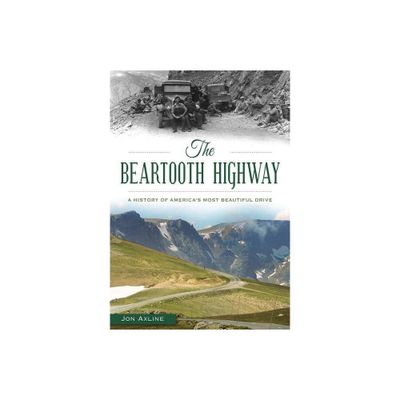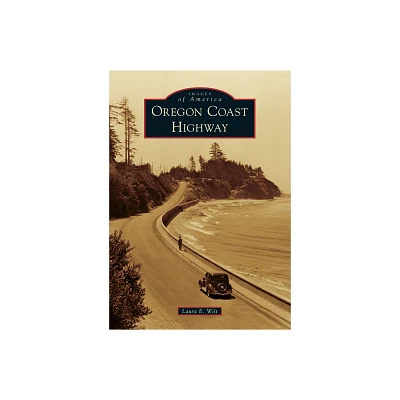Home
American V: A Hundred Highways
Loading Inventory...
Barnes and Noble
American V: A Hundred Highways
Current price: $13.99


Barnes and Noble
American V: A Hundred Highways
Current price: $13.99
Loading Inventory...
Size: CD
*Product Information may vary - to confirm product availability, pricing, and additional information please contact Barnes and Noble
American V: A Hundred Highways
is the long-awaited album of
Johnny Cash
's final recordings, the basic tracks for which (i.e.,
Cash
's vocals) were recorded in 2002-2003, with overdubs added by producer
Rick Rubin
after his death on September 12, 2003, at age 71. Between 1994 and 2002,
and
Rubin
had succeeded in fashioning a third act for the veteran
country
singer's career, following his acclaimed 1950s work for
Sun Records
and his popular recordings for
Columbia
in the 1960s and '70s. In the '80s,
's star had faded, but
reinvented him as a hip
-
folk
rock
elder at 62 with
American Recordings
(1994), his first new studio album to reach the
pop
charts in 18 years.
Unchained
(1996) and
American III: Solitary Man
(2000) continued the comeback, at least as far as the critics were concerned, though none of the albums was actually a big seller. But
American IV: The Man Comes Around
(2002), propelled by
's cover of
Nine Inch Nails
'
"Hurt"
and a powerful video, stayed in the
charts longer than any
album since 1969's
Johnny Cash at San Quentin
. By 2002, however,
was in failing health, homebound and in a wheelchair, and he suffered a personal blow when his wife,
June Carter Cash
, died on May 15, 2003. The
American
series, which posited
as an aged sage and the repository for a bottomless American songbook, had already shown a predilection for gloom in the name of gravity; it's no surprise that the fifth and final volume would be even more concerned with, as three earlier
compilations had put it,
God
,
Love
, and
Murder
. The ailing septuagenarian certainly sounds like he's near the end of his life, but that said, he doesn't sound bad.
was never a great singer in a technical sense: he hadn't much range, his pitch often wobbled, and his lack of breath control sometimes found him grasping for sound at the end of lines. But he was a great singer in the sense of projecting a persona through his voice; his emotional range, which went from a
Sinatra
-like swagger to an almost embarrassingly intimate vulnerability, was as wide as the spread of notes he could hit confidently was narrow. Such a singer doesn't really lose that much with age; in fact, he gains even more interpretive depth. Listening to this album, one can't get around the knowledge that it is a posthumous collection made in
's last days, but even without that context, it would have much the same impact.
The album begins with two religious songs,
Larry Gatlin
's
"Help Me,"
a plea to God, and the
traditional
"God's Gonna Cut You Down,"
which, in a sense, answers that plea. The finality of death thus established,
launches into what is billed as the last song he ever wrote,
"Like the 309,"
which is about a train taking his casket away. The same image is used later in the cover of
Hank Williams
"On the Evening Train,"
in which a man and his child put the coffin of a wife and mother on another train.
sings these songs in a restrained manner, and even has a sense of humor in
in which he complains about his asthma: "It should be awhile/Before I see Doctor Death/So it would sure be nice/If I could get my breath." In between the two train songs come songs that may not have been about death when their authors wrote them, but sure sound like they are here. As written,
Gordon Lightfoot
"If You Could Read My Mind"
seems to concern a romantic breakup expressed in literary and cinematic terms, but in
's voice, lines like "You know that ghost is me" and "But stories always end" become inescapably elegiac.
Bruce Springsteen
"Further On (Up the Road)"
is even easier to interpret as a call to the hereafter, with lines like "Got on my dead man's suit and my smilin' skull ring/My lucky graveyard boots and song to sing." These two songs make a pair with the album's two closing songs.
Ian Tyson
"Four Strong Winds"
is, like the
Lightfoot
selection, a
standard
by a Canadian songwriter, also nominally about romantic dissolution, although here the singer who is "bound for moving on" doesn't seem likely to come back. And the closing song,
"I'm Free from the Chain Gang Now,"
may have lyrics implying that the unjustly imprisoned narrator has been set free, but in
's voice it sounds like he's been executed instead and is singing from beyond the grave. The four songs in between
"On the Evening Train"
"Four Strong Winds,"
dealing with faith and love (the former expressed in a previously recorded 1984
copyright,
"I Came to Believe"
), are weaker than what surrounds them, but they serve to complete the picture. And it's worth noting that
at death's door still outsings croaking
Rod McKuen
on the songwriter's ever-cloying
"Love's Been Good to Me."
may never have heard
's overdubs, but they are restrained and tasteful, never doing anything more than to support the singer and the song. If the entire series of
recordings makes for a fitting finale to a great career,
is a more than respectable coda. ~William Ruhlmann
is the long-awaited album of
Johnny Cash
's final recordings, the basic tracks for which (i.e.,
Cash
's vocals) were recorded in 2002-2003, with overdubs added by producer
Rick Rubin
after his death on September 12, 2003, at age 71. Between 1994 and 2002,
and
Rubin
had succeeded in fashioning a third act for the veteran
country
singer's career, following his acclaimed 1950s work for
Sun Records
and his popular recordings for
Columbia
in the 1960s and '70s. In the '80s,
's star had faded, but
reinvented him as a hip
-
folk
rock
elder at 62 with
American Recordings
(1994), his first new studio album to reach the
pop
charts in 18 years.
Unchained
(1996) and
American III: Solitary Man
(2000) continued the comeback, at least as far as the critics were concerned, though none of the albums was actually a big seller. But
American IV: The Man Comes Around
(2002), propelled by
's cover of
Nine Inch Nails
'
"Hurt"
and a powerful video, stayed in the
charts longer than any
album since 1969's
Johnny Cash at San Quentin
. By 2002, however,
was in failing health, homebound and in a wheelchair, and he suffered a personal blow when his wife,
June Carter Cash
, died on May 15, 2003. The
American
series, which posited
as an aged sage and the repository for a bottomless American songbook, had already shown a predilection for gloom in the name of gravity; it's no surprise that the fifth and final volume would be even more concerned with, as three earlier
compilations had put it,
God
,
Love
, and
Murder
. The ailing septuagenarian certainly sounds like he's near the end of his life, but that said, he doesn't sound bad.
was never a great singer in a technical sense: he hadn't much range, his pitch often wobbled, and his lack of breath control sometimes found him grasping for sound at the end of lines. But he was a great singer in the sense of projecting a persona through his voice; his emotional range, which went from a
Sinatra
-like swagger to an almost embarrassingly intimate vulnerability, was as wide as the spread of notes he could hit confidently was narrow. Such a singer doesn't really lose that much with age; in fact, he gains even more interpretive depth. Listening to this album, one can't get around the knowledge that it is a posthumous collection made in
's last days, but even without that context, it would have much the same impact.
The album begins with two religious songs,
Larry Gatlin
's
"Help Me,"
a plea to God, and the
traditional
"God's Gonna Cut You Down,"
which, in a sense, answers that plea. The finality of death thus established,
launches into what is billed as the last song he ever wrote,
"Like the 309,"
which is about a train taking his casket away. The same image is used later in the cover of
Hank Williams
"On the Evening Train,"
in which a man and his child put the coffin of a wife and mother on another train.
sings these songs in a restrained manner, and even has a sense of humor in
in which he complains about his asthma: "It should be awhile/Before I see Doctor Death/So it would sure be nice/If I could get my breath." In between the two train songs come songs that may not have been about death when their authors wrote them, but sure sound like they are here. As written,
Gordon Lightfoot
"If You Could Read My Mind"
seems to concern a romantic breakup expressed in literary and cinematic terms, but in
's voice, lines like "You know that ghost is me" and "But stories always end" become inescapably elegiac.
Bruce Springsteen
"Further On (Up the Road)"
is even easier to interpret as a call to the hereafter, with lines like "Got on my dead man's suit and my smilin' skull ring/My lucky graveyard boots and song to sing." These two songs make a pair with the album's two closing songs.
Ian Tyson
"Four Strong Winds"
is, like the
Lightfoot
selection, a
standard
by a Canadian songwriter, also nominally about romantic dissolution, although here the singer who is "bound for moving on" doesn't seem likely to come back. And the closing song,
"I'm Free from the Chain Gang Now,"
may have lyrics implying that the unjustly imprisoned narrator has been set free, but in
's voice it sounds like he's been executed instead and is singing from beyond the grave. The four songs in between
"On the Evening Train"
"Four Strong Winds,"
dealing with faith and love (the former expressed in a previously recorded 1984
copyright,
"I Came to Believe"
), are weaker than what surrounds them, but they serve to complete the picture. And it's worth noting that
at death's door still outsings croaking
Rod McKuen
on the songwriter's ever-cloying
"Love's Been Good to Me."
may never have heard
's overdubs, but they are restrained and tasteful, never doing anything more than to support the singer and the song. If the entire series of
recordings makes for a fitting finale to a great career,
is a more than respectable coda. ~William Ruhlmann


















